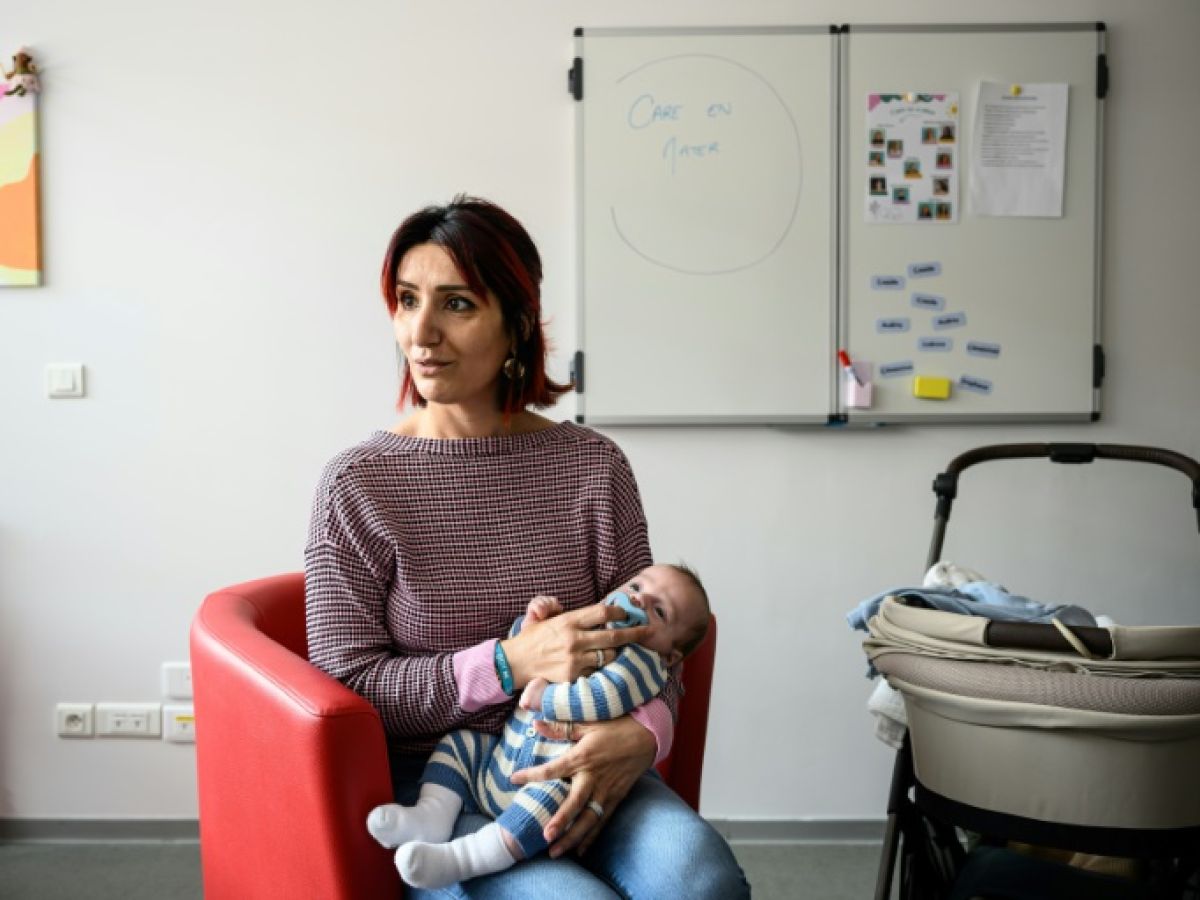Welcoming a newborn can seem insurmountable when one of the parents has significant vulnerabilities, such as depression or drug addiction, hence the opening of a new service at Toulouse University Hospital, which now offers to welcome the most struggling families within a multidisciplinary team.
Since spring, the "Care en Mater" unit has been offering five beds to these families in a position of great vulnerability, for a maximum of 28 days after birth, in order to best support them during this critical moment, to provide assistance and protect the child.
“Occitanie could not remain without a parent-baby unit,” explains child psychiatrist Ludivine Guérin, who helped lead the project, which has been in the making since 2020.
Until now, parents in difficulty were treated in particular in psychiatric hospitals.
– “I hated being pregnant” –

"I hated being pregnant," confides Cristina, 43, who went through this service a few months ago with her little Ezio and her dad Stéphan. Subject to violent and incessant vomiting throughout her pregnancy, this inventory manager at a Toulouse company "didn't invest in (her) pregnancy at all," even though she was so "impatient to be a mother."
"We vomit all the time, all the time, all the time. At some point, we tell ourselves that the baby can't grow in these conditions, so to protect ourselves, we tell ourselves that it will inevitably disappear and we don't believe it," she explains.
So, around the sixth month of pregnancy, a concerned doctor suggested she join this dedicated team after giving birth. Upon Ezio's arrival, she was taken care of for two weeks by the Care en Mater team, which included child psychiatrists, a psychologist, a psychomotor therapist, and a social worker.
Care en Mater receives patients who fall into four broad categories, explains Dr. Guérin: people with anxiety or depressive disorders, those suffering from chronic psychotic illnesses (schizophrenia, bipolar disorder), those with personality disorders (which are "not illnesses, but rather childhood constructs with significant difficulty regulating emotions"), or those with "psychosocial deficiencies, including drug addiction."
"For these families, we have to invest a lot of resources from the start," she explains. "We're changing the hospital's rules. For example, we serve breakfast when the family wakes up (and not at a set time, editor's note), and the pediatricians try not to wake the babies..."
– The baby “does not look at his mother” –
One Friday in July, Elisa (name changed) was the first to arrive with her baby at the workshop entitled "Introduce Your Children." Schizophrenic, she was on heavy neuroleptic medication.
Then Josie enters, asleep in her crib on wheels, pushed by her parents Sébastien and Jennifer (names changed). Her mother, prone to depression and whose several children from previous relationships had to be placed in care, shows attachment difficulties.

"Josie doesn't look at her mother at all," the midwife notes once the parents have left. "15-day-old babies actively avoiding their parents' gaze, while they're looking at us, the caregivers, is quite incredible," Ludivine Guérin points out.
"A baby who is not well makes much less noise than a teenager who breaks everything," explains the other child psychiatrist on the ward, Lola Villetorte. "He will withdraw, sleep, be forgotten, eat less, and will not look at" his parents, subtle signs that reflect a risk that the child "will develop poorly and be more vulnerable in adolescence and adulthood," she continues.
Acting as soon as these signals are detected is imperative, child psychiatrists emphasize. "Neural plasticity exists up to 18 months, so the earlier intensive rehabilitation care is provided, including psychomotor skills, the better the child's chances of compensating for certain difficulties later on," notes Ludivine Guérin.
After the workshop, the child psychiatrist calls a former patient to check on her. The young mother with borderline personality disorder says she had an anxiety attack that morning, to the point where she could no longer care for her child. "It was exactly what I was afraid would happen to me," she says, before asking, "Do you think these anxiety attacks are serious?"
"You have borderline personality disorder, so you feel your fears a thousandfold. Taking a step back, as you have done, is what you need to do. It doesn't mean you're not a good mother," reassures Ludivine Guérin.
"You can come back in a few days," the psychiatrist suggests gently before hanging up.

